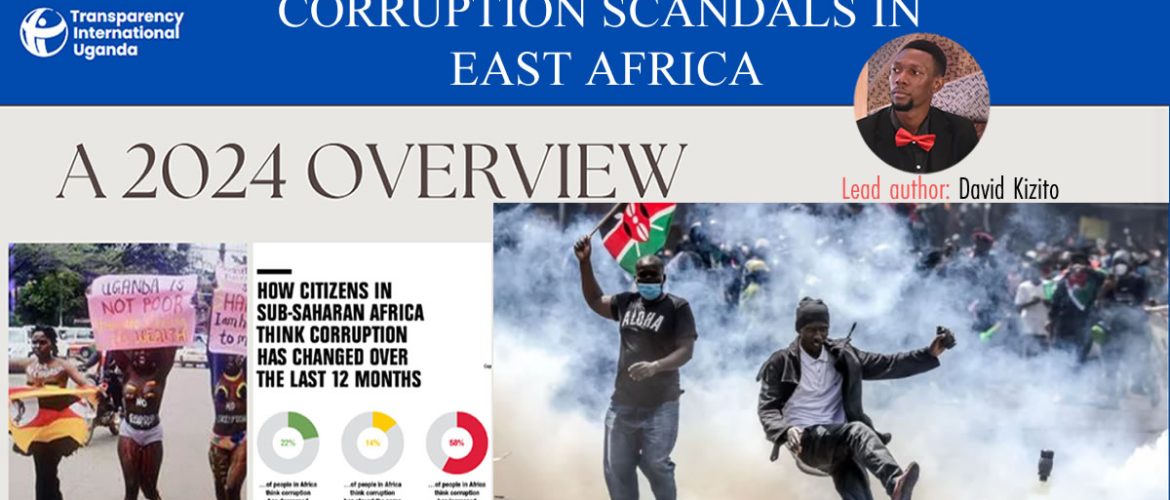As East African nations strive for socio-economic development, they encounter significant hurdles in delivering essential public services to their populations. Recent reports by Uganda’s Budget Monitoring Unit and the African Management Development Institutes Network reveal ongoing deficiencies in vital sectors such as health, education, and water supply. it still faces challenges regarding resource adequacy and access to health insurance, especially for illiterate and cohabiting families (TI-Rwanda Risk Assessment Report 2024). While Rwanda demonstrates relatively better outcomes compared to Uganda and Kenya,This context underscores the pressing need for effective governance and stringent anti-corruption measures to ensure the equitable allocation of public resources. The specter of corruption looms large in the public sector; in Uganda, for instance, there is a widespread belief that corruption has become entrenched within the national budget, with key officials allegedly colluding to inflict financial losses through systematic schemes.
Corruption Perceptions Index and Public Response
The East African region continues to rank poorly on the Corruption Perceptions Index (CPI) 2023, with six countries—Kenya, Uganda, Burundi, DRC, South Sudan, and Somalia—scoring below the Sub-Saharan average of 33%. Only Rwanda surpassed the global average with a score of 53%. Countries like Uganda, Kenya, Burundi, Somalia, and DRC showed little to no progress according to the CPI (Transparency International CPI 2023). Estimates suggest that Uganda loses approximately $2.48 billion annually due to corruption (IGG 2021). Despite these grim statistics, 2024 has marked a significant awakening among citizens who are increasingly proactive in governance issues. Notable events include anti-corruption demonstrations in Uganda’s Parliament and protests against Kenya’s finance bill led by Gen-Z activists. These movements indicate a growing public fatigue with the mismanagement of resources.
Major Scandals of 2024
Several high-profile scandals have dominated headlines throughout 2024:
Service Awards Scandal: Four members of Parliament allegedly misappropriated over $461,380 intended for service awards, with the former leader of opposition pocketing $135,700.
Corruption Charges Against MPs: Members of Parliament on Uganda’s budget committee were arrested for soliciting a 20% kickback from the Uganda Human Rights Commission to influence its budget.
Impeachment of Deputy President Rigathi Gachagua: On October 8, 2024, Kenya’s Deputy President was impeached for allegedly amassing over $40 million illicitly within two years.
Bank of Uganda Heist: An alleged fraud involving $13 million was reported at the Bank of Uganda, with funds reportedly diverted to accounts in the UK and Japan amid accusations of collusion.
Sanctions Against Key Individuals: Kenyan businessman Kamlesh Patnni faced sanctions for gold laundering activities. Additionally, top Ugandan politicians were sanctioned for diverting relief supplies intended for vulnerable communities.
Arrest of URA Staff; John Mawerere from the Uganda Revenue Authority (URA) was arrested over allegations of siphoning over $18.9 million during an internal audit. These scandals highlight systemic failures and institutional weaknesses that hinder effective anti-corruption efforts. The resources squandered through corruption could significantly alleviate East African countries’ growing debt burdens if utilized efficiently.
Looking A head
- In 2025, governments in the East African region should enhance support for anti-corruption agencies to fulfill their mandates effectively. While Uganda was removed from the FATF Grey List, Kenya and Tanzania continue on the list and therefore need collaborative efforts to address the weak areas.
- Enacting robust laws on asset recovery and management will be crucial for redirecting recovered funds towards public expenditure. Additionally, establishing strong witness protection laws and ensuring access to information will foster greater public participation in reporting corruption.
- Concerted efforts shall be required from governments, Citizens and civil society organizations to combat corruption effectively and restore public trust in governance across East Africa.
You can download the article from here


